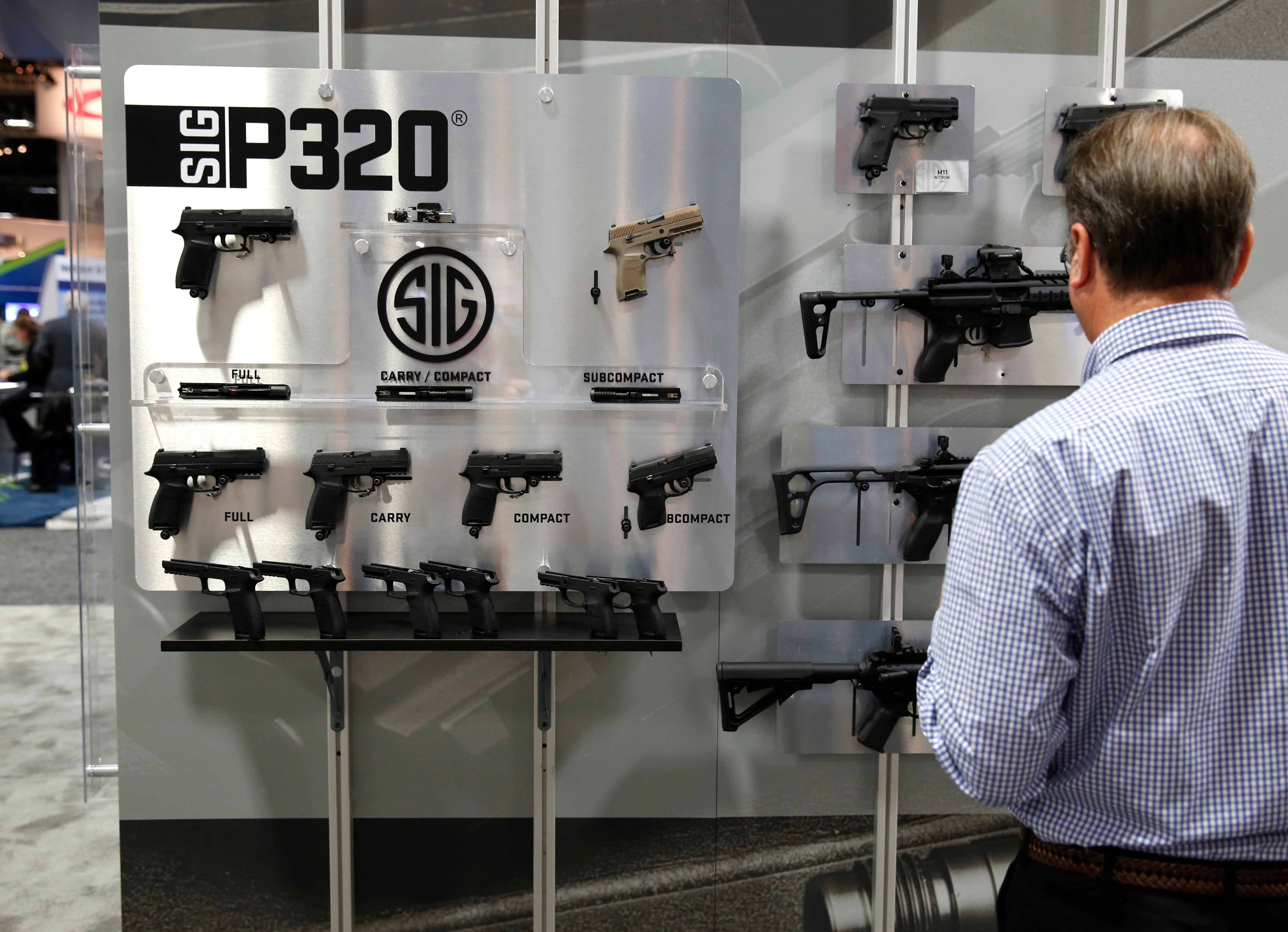Gun-making giants like SIG Sauer, Glock, Smith & Wesson, and FN Herstal all say they plan to compete for a chance to replace Beretta's M9 as the Army's service pistol.
Submissions are due Jan. 28, and many companies are still wrestling with the requirements for the XM17 Modular Handgun System.
Beretta will also enter a bid to retain its contract after failing to convince the Army an upgrade from the M9 to the M9A3 would have been a cheaper way to meet the Army's needs.
Meanwhile, Czech gun maker CZ says said it will not compete. Neither will Ruger, according to media reporters. A Heckler & Koch official at AUSA declined to stay where his company stood.
The Army is considering 9mm, but also .40- and .45-caliber guns.
SIG Sauer plans to enter a gun from its P320 line, which comes in 9mm, .40 caliber and .45 caliber. The Army is allowing each company to make two submissions, so long as each is a different caliber.
SIG Sauer's G government sales manager, Robby Johnson, said the P320 has "peaked at the right time" in development and expressed confidence in its candidacy, as it has won recent federal law enforcement contracts (he declined to specify). He cited top-tier safety-features, modularity (including interchangeable grips rather than backstraps or side panels) and overall quality. But he also noted the uncertainty that has driven some away.
"We understand the Army's posture," Johnson said. "We feel like with more clarity and caliber specificity we could build exactly what the government is looking for, but we feel like we have an understanding what the government is looking for. But any time you leave it to chance, there's a chance we don't pick the right one."
Despite being all-in, he said SIG Sauer might not even enter two calibers.

Sig Sauer P320 handgun on display at AUSA.
Photo Credit: Jennifer Milbrett/Staff
Ammunition is another variable, as the Army is open to full-metal jacket ammunition, and also expanding or fragmenting rounds.
Gabe Bailey, a manager of military business development for Beretta, said ammo makers were still tweaking their offerings, further complicating the process.
Tony Musa, a federal/military sales manager at Glock, said the company was still determining which ammo to use, which would impact affect their gun choice.
Representatives from Smith & Wesson at AUSA declined to go into detail beyond saying they would be entering will enter a version of their M&P model, the first iteration of which debuted in 2005.
Czech company CZ had hoped to enter its popular P-07 model, noted for a slide that rides inside the frame, as opposed to wrapping around it. CZ's John Simmons, a retired Army officer, said that made the slide lighter and reduced recoil, and that the gun offered highly-competitive fit-and-finish, durability, accuracy and magazine capacity at a good price point.
But the gun also was made to have either a decocker or a safety; the Army requirements mandate both, which Simmons suggested to be overkill.
"It was a business decision at the end of the day [not to submit]," he said. "It would make a great gun less great."
In addition, he said having someone come in to write the proposal and ensure compliance with the 351-page solicitation would cost the smaller company $1.5 million – again all with no guarantee of getting anything in return.
Even Ruger, a much larger company, came to the same conclusion. Guns.com reported that its CEO Mike Fifer said in a conference call to investors that the high cost of competing came with a low likelihood of any one company winning the contract.
Smith & Wesson, meanwhile, has partnered with General Dynamics, a collaboration primarily designed to leverage General Dynamics’ expertise in government contracting.
Beretta has publicly complained that the government never formally requested efforts to improve its M9, which the company says said is a standard procedure for upgrading platforms.
"If you look at the history… for a variety of weapons, you’ll find all along we’ll have used spiral development, product improvement. Where was the requirement they notify prime contractor with an opportunity to fix the problem?" said Howard Yellen, a military advisoer for Beretta.
Bailey said Beretta will enter a pistol – not the M9A3 – in the MHS competition; though he declined to say which, the company debuted its striker-fire pistol, the APX, earlier this year. He also noted that the Joint Combat Pistol competition in 2005-06 and the Individual Carbine program in 2010-13 both ended without a winner and the Army sticking to the M9 and Colt M4 carbine respectively.









